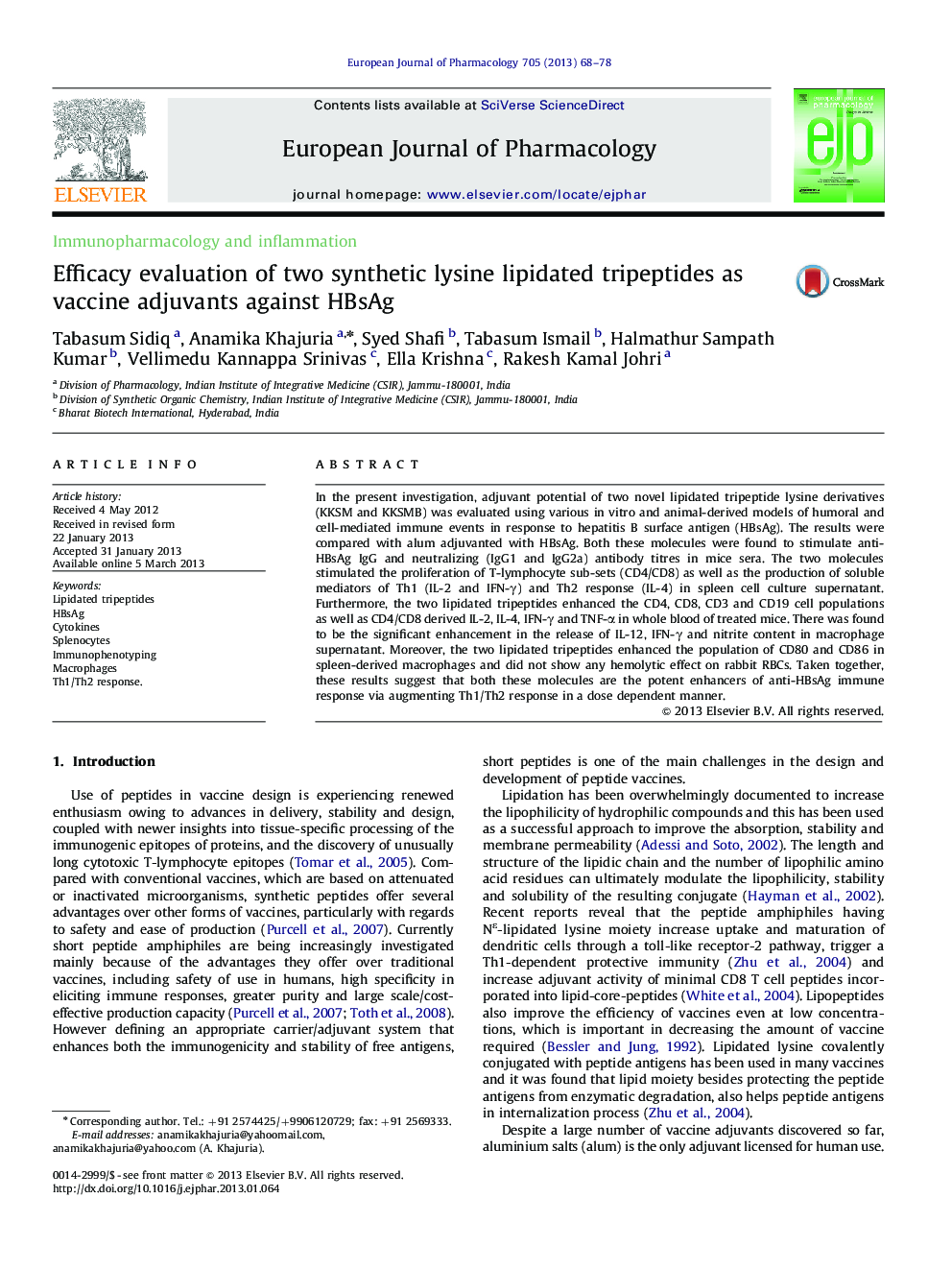| Article ID | Journal | Published Year | Pages | File Type |
|---|---|---|---|---|
| 2532231 | European Journal of Pharmacology | 2013 | 11 Pages |
In the present investigation, adjuvant potential of two novel lipidated tripeptide lysine derivatives (KKSM and KKSMB) was evaluated using various in vitro and animal-derived models of humoral and cell-mediated immune events in response to hepatitis B surface antigen (HBsAg). The results were compared with alum adjuvanted with HBsAg. Both these molecules were found to stimulate anti-HBsAg IgG and neutralizing (IgG1 and IgG2a) antibody titres in mice sera. The two molecules stimulated the proliferation of T-lymphocyte sub-sets (CD4/CD8) as well as the production of soluble mediators of Th1 (IL-2 and IFN-γ) and Th2 response (IL-4) in spleen cell culture supernatant. Furthermore, the two lipidated tripeptides enhanced the CD4, CD8, CD3 and CD19 cell populations as well as CD4/CD8 derived IL-2, IL-4, IFN-γ and TNF-α in whole blood of treated mice. There was found to be the significant enhancement in the release of IL-12, IFN-γ and nitrite content in macrophage supernatant. Moreover, the two lipidated tripeptides enhanced the population of CD80 and CD86 in spleen-derived macrophages and did not show any hemolytic effect on rabbit RBCs. Taken together, these results suggest that both these molecules are the potent enhancers of anti-HBsAg immune response via augmenting Th1/Th2 response in a dose dependent manner.
